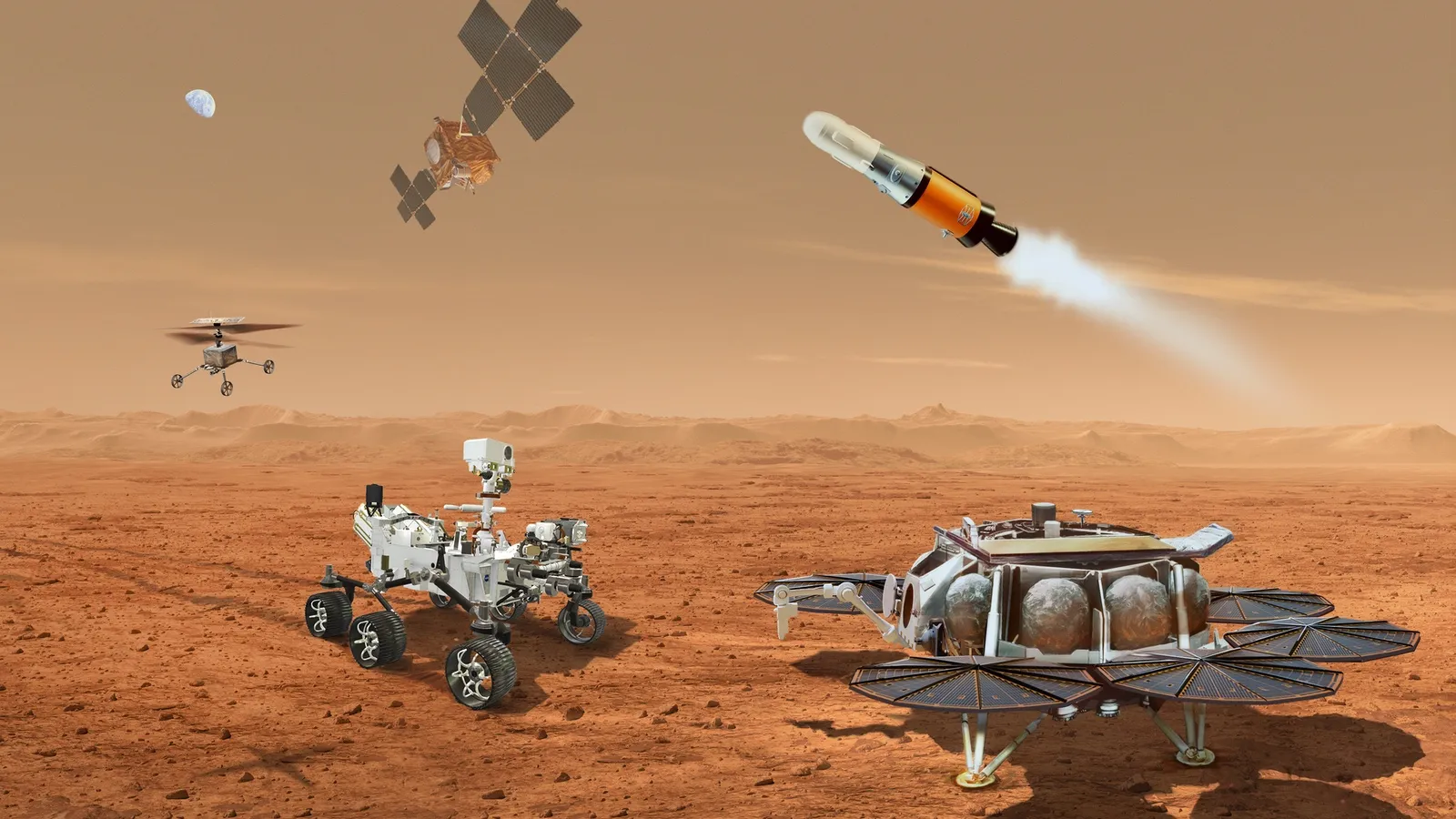Space Tech: How Private Companies Are Leading the Charge to Mars
In recent years, private companies have been making significant strides in space technology, taking on a role traditionally held by government space agencies. One of the most exciting frontiers they are exploring is Mars, with many private firms working on ambitious projects to send humans and robots to the Red Planet. Companies like SpaceX, Blue Origin, and others are leading the charge with their innovative technologies and new approaches to space exploration. This article explores how private companies are shaping the future of Mars exploration, what they are doing, and why their involvement is so important.

The Shift to Private Space Exploration
For most of human history, space exploration has been dominated by government agencies like NASA, the European Space Agency (ESA), and the Russian space agency Roscosmos. These organizations conducted missions to space and were responsible for launching satellites, sending astronauts to the Moon, and exploring distant planets. However, in the last two decades, private companies have entered the space race, bringing with them fresh ideas and an entrepreneurial spirit.
This shift began in the early 2000s, when companies like SpaceX, founded by Elon Musk in 2002, and Blue Origin, founded by Jeff Bezos in 2000, started to develop their own spacecraft and rockets. These private firms aimed to reduce the cost of space travel, make space more accessible, and push the boundaries of what could be achieved in space exploration.
SpaceX: Leading the Charge
Among the private companies involved in space exploration, SpaceX is the most well-known. Founded by Elon Musk, SpaceX has made remarkable progress in its journey toward Mars. Their ultimate goal is to make space travel affordable and to establish a human colony on Mars.
SpaceX’s major achievements include the development of the Falcon 1, Falcon 9, and Falcon Heavy rockets, all of which have made significant contributions to space exploration. The Falcon 9, for example, has revolutionized space travel by being reusable. This means that the rocket’s first stage can land back on Earth after a launch and be used again for future missions. This breakthrough has dramatically reduced the cost of space missions.
SpaceX also developed the Dragon spacecraft, which can carry cargo and astronauts to the International Space Station (ISS). The company’s biggest project, however, is the Starship, a fully reusable spacecraft designed to take humans to Mars and other planets. Starship will be the key to SpaceX’s goal of building a human colony on Mars, and the company is already testing prototypes with the hope of launching the first crewed mission to Mars in the 2020s.

Blue Origin: Pushing the Boundaries of Space Travel
Blue Origin, founded by Amazon’s Jeff Bezos, is another major player in the private space sector. Although it is not as focused on Mars exploration as SpaceX, Blue Origin has made significant contributions to space technology, especially in the area of reusable rockets.
Blue Origin’s New Shepard rocket is designed for suborbital flights, which means it takes passengers to the edge of space for a brief period before returning to Earth. While this may seem less ambitious than a Mars mission, it plays an important role in advancing space technology and proving the feasibility of reusable space vehicles. Blue Origin’s New Glenn rocket, which is still in development, aims to be a heavy-lift vehicle that could carry large payloads to orbit and eventually be used for missions to the Moon and Mars.
Blue Origin is also focused on building a human presence in space through the development of orbital habitats and lunar landers. Although its primary focus is not Mars, the company’s advancements in rocket technology, space habitats, and landing systems are essential for future Mars exploration.

Other Private Companies in the Race to Mars
While SpaceX and Blue Origin are the most well-known, many other private companies are working on space technologies that could contribute to Mars missions. Companies like Rocket Lab, Axiom Space, and Sierra Nevada Corporation are developing a variety of technologies ranging from smaller launch vehicles to space habitats and space stations.
Rocket Lab, for instance, is a small satellite launch company that is working on making it easier and more affordable to send small payloads into space. These payloads could include scientific instruments for Mars exploration or even small rovers that could help map the surface of Mars. Axiom Space, meanwhile, is focused on building a commercial space station, which could serve as a launching point for future Mars missions.

Why Private Companies Are Important for Mars Exploration
The involvement of private companies in Mars exploration is crucial for several reasons:
-
Innovation: Private companies bring a fresh approach to space exploration, using cutting-edge technologies and new ideas. This spirit of innovation often leads to faster progress and groundbreaking achievements.
-
Cost Reduction: One of the main goals of private space companies is to make space travel more affordable. By developing reusable rockets and reducing the cost of launching payloads into space, these companies are making Mars missions more economically viable.
-
Collaboration with Government Agencies: Private companies are not replacing government space agencies like NASA. Instead, they are collaborating with these agencies to achieve common goals. NASA, for example, has partnered with SpaceX to send astronauts to the ISS and to develop the Orion spacecraft for deep space missions. This collaboration allows NASA to focus on more ambitious goals, like crewed missions to Mars, while leveraging the expertise of private companies.
-
Long-Term Vision: Private companies like SpaceX have long-term goals of establishing human colonies on Mars. Their vision for the future of space exploration includes not just visiting Mars, but making it a second home for humanity. This level of ambition is driving forward the technologies that will one day allow us to live on another planet.
The Challenges of Mars Exploration
While private companies are making great strides, there are still many challenges to overcome in Mars exploration. One of the biggest challenges is the development of life-support systems that can keep astronauts alive for extended periods on Mars. The journey to Mars takes about six to nine months, and astronauts will need to be able to survive in space for that entire time.
Once on Mars, astronauts will also need shelter, food, water, and protection from the harsh environment. Mars has extreme temperatures, a thin atmosphere, and high levels of radiation, which could be dangerous for human health. Private companies are working on developing technologies such as habitat modules, radiation shields, and sustainable food production systems to address these issues.
Another challenge is the distance between Earth and Mars. Communications between the two planets can take up to 24 minutes one way, making real-time communication difficult. This means that astronauts will have to rely on autonomous systems and artificial intelligence to help them make decisions while on Mars.

The Future of Mars Exploration
The future of Mars exploration is exciting and full of possibilities. Private companies are playing an increasingly important role in this effort, pushing the boundaries of space technology and bringing new ideas to the table. SpaceX’s Starship, for example, could be the key to human colonization of Mars, while other companies like Blue Origin and Rocket Lab are developing technologies that will support these missions.
In the coming decades, we can expect more private companies to enter the space race, bringing even more innovation and competition. With the help of the private sector, Mars exploration is no longer a distant dream but an achievable goal.
Conclusion.
Private companies are leading the charge to Mars by developing new technologies, reducing the cost of space travel, and taking on ambitious projects that were once the sole domain of government agencies. With companies like SpaceX, Blue Origin, and others pushing the boundaries of space exploration, the dream of sending humans to Mars is getting closer to reality. While there are still many challenges to overcome, the involvement of the private sector is ensuring that space exploration continues to evolve and progress toward making Mars a new home for humanity.


You must be logged in to post a comment.